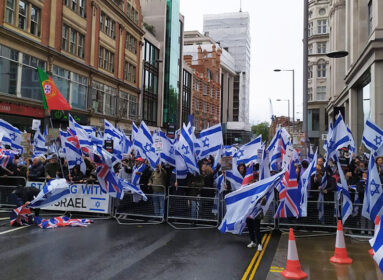
(JTA) – Nine bronze coins dating to the seventh century were found during excavation work undertaken before widening the main Tel Aviv-Jerusalem highway.
The coins were discovered after the unearthing of a two-story building and winepress that is believed to have served Christian pilgrims on their way to Jerusalem. A Byzantine church was revealed in excavations on the other side of the road.
The cloth bag containing the coins was discovered among the large stones surrounding the collapsed building, the Israel Antiquities Authority announced Sunday.
Annette Landes-Nagar, director of the excavation on behalf of the Israel Antiquities Authority, said it is likely that the owner of the coins hid them in a niche in the wall of the building during a time of danger with the hopes of going back later to retrieve them.
“The hoard constitutes evidence of the Persian invasion at the end of the Byzantine period, which led to the abandonment of the site,” she said.
The coins bear the images of three important Byzantine emperors: Justinian (483-565 A.D.), Maurice (539-602 C.E.) and Phocas (547-610 C.E.). They were struck at three different mints: Constantinople, Antioch and Nicomedia, all of which are located in what today is Turkey.
The excavation work on Route 1 began last June.







 Southern New England Jewish Ledger
Southern New England Jewish Ledger














